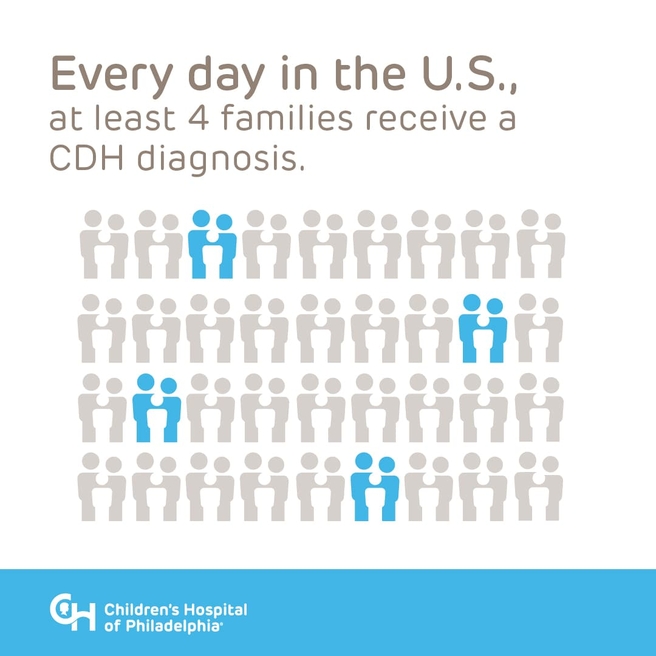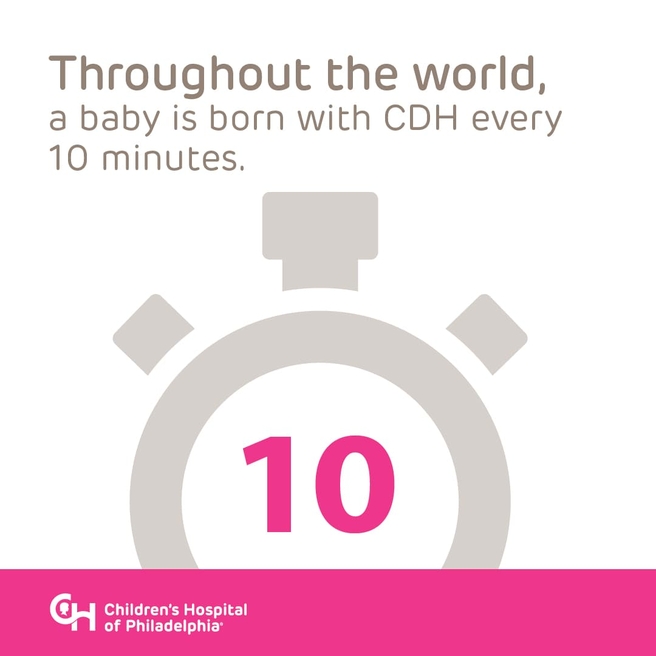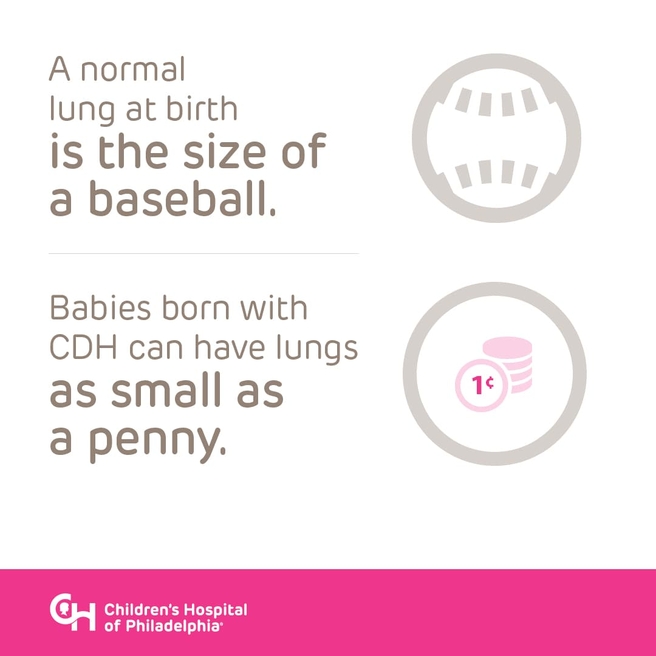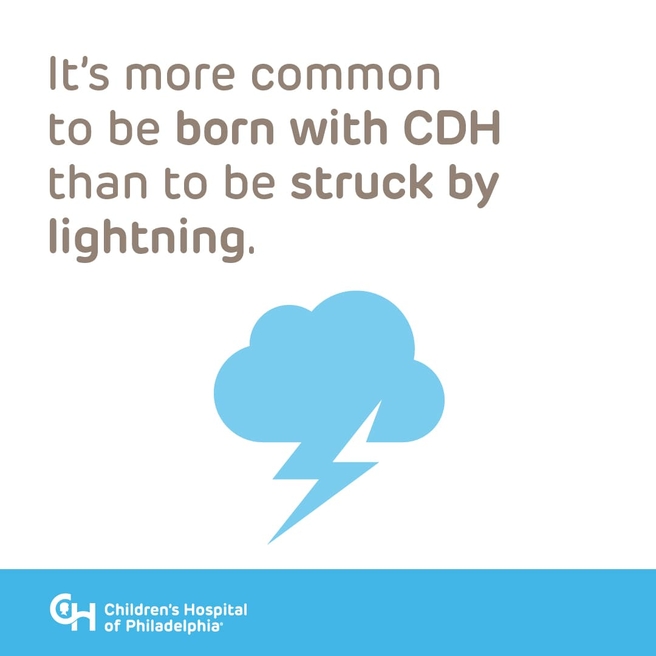Congenital Diaphragmatic Hernia (CDH) Facts
Congenital Diaphragmatic Hernia (CDH) Facts
About 1,600 babies are born with congenital diaphragmatic hernia (CDH) every year in the U.S. It's just as common as cystic fibrosis and spina bifida, but many people have never heard of it. CDH can be life-threatening if it's not treated.
Get CDH facts then share with your friends and family to help raise awareness of birth defects and the treatments available for them.
What is CDH?

CDH stands for congenital diaphragmatic hernia, a life-threatening condition in which the diaphragm doesn’t form properly, leaving a hole in the muscle through which the abdominal organs move into the chest.
It's more common to be born with CDH than to be struck by lightning, but most people have never heard of the condition.
Throughout the world:
- 147 babies are born with CDH every day
- Every 10 minutes, a baby is born with CDH
In the U.S.:
- CDH affects 1 in every 2,500 babies
- Every day, at least 4 families receive a CDH diagnosis
Resulting Problems
Abdominal organs can compress the lungs and prevent them from growing and developing normally. Babies born with CDH can have lungs as small as a penny. In comparison, a normal lung at birth is the size of a baseball.
Underdeveloped lungs can cause these life-threatening complications:
- Breathing difficulty
- Pulmonary hypertension (high blood pressure in the lungs)
- Chronic lung disease
- Gastroesophageal reflux

| 
|

| 
|
Download the entire collection.
Treating CDH
Babies born with CDH are extremely fragile. The slightest change in their condition can have a big impact on their outcome/survival.
At Children’s Hospital of Philadelphia (CHOP), CDH can be diagnosed before birth by ultrasound as early as 16 weeks gestation. Early diagnosis and delivery in CHOP’s Garbose Family Special Delivery Unit (SDU)—the world’s first birth facility exclusively for pregnancies complicated by birth defects, like CDH— allows for coordinated care immediately upon delivery by an expert multidisciplinary team.
As one of the top children’s hospitals in the country, CHOP has treated children with CDH from all over the world. CHOP’s world-renowned Center for Fetal Diagnosis and Treatment has cared for more families affected by CDH than any other center in the world.
Our Experience with CDH
More than 1,695
patients referred to the CFDT
421
babies with CDH delivered in our Special Delivery Unit since July 2008
More than 598
patients with CDH repaired postnatally
261
CDH patients on ECMO
All numbers except deliveries reflect data from 1995-December 2020 at Children's Hospital of Philadelphia.
Sources
- Children’s Hospital of Philadelphia’s Center for Fetal Diagnosis and Treatment and Center for Fetal Research
- Centers for Disease Control and Prevention (CDC)
- National Institutes of Health (NIH)
- Pregnancy.org